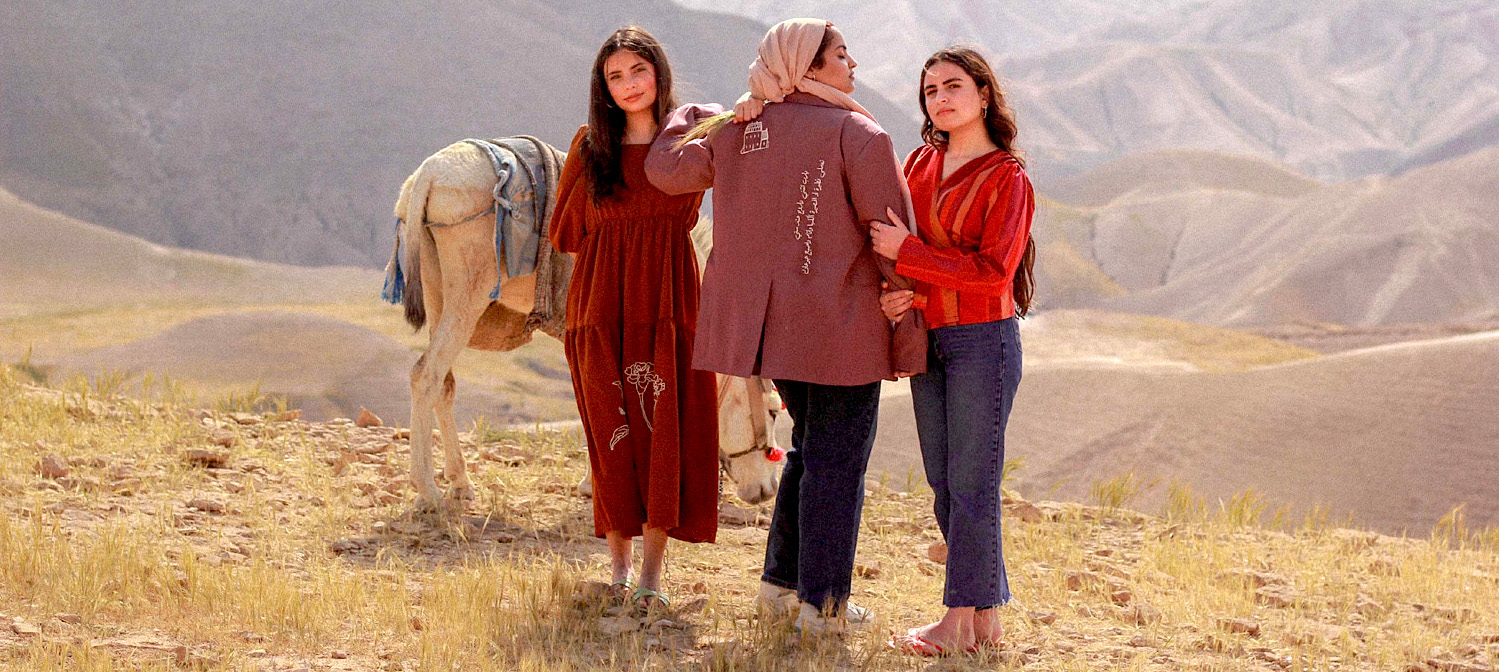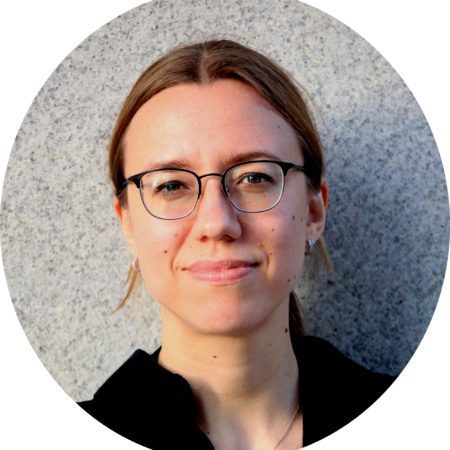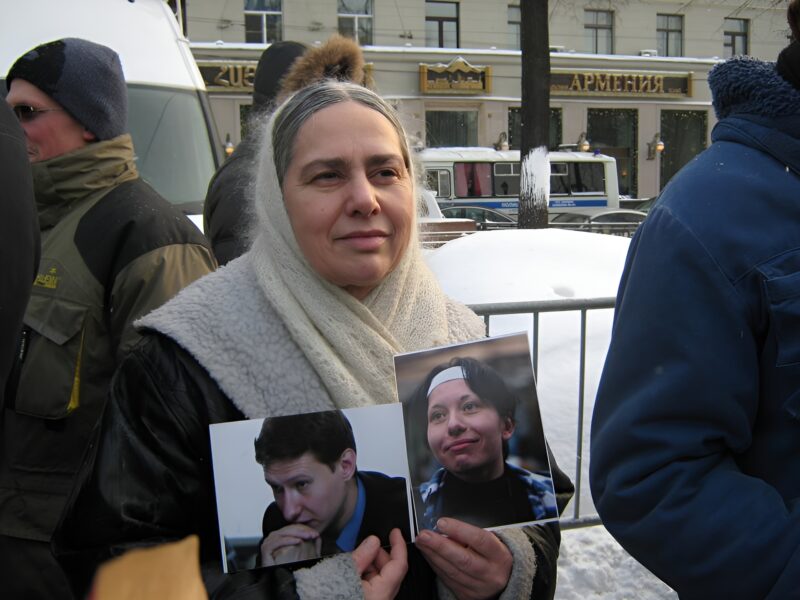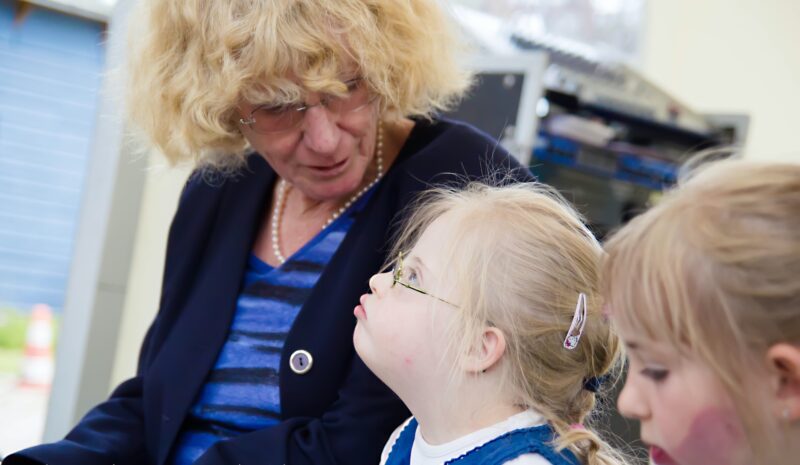In the Palestinian West Bank, her family’s home, Yasmin Mjalli suffered sexual harassment for the first time. Her spontaneous reaction to it grew into a fashion label – and a feminist initiative that changed her life.
By Mareike Enghusen, Tel Aviv
There are moments when pain brings forth something new. In Yasmin Mjalli’s life, there was such a moment five years ago. It was International Women’s Day, Yasmin was 21 years old and had recently moved from her previous home in North Carolina, USA, to Ramallah in the Palestinian West Bank.
She had followed her Palestinian parents, who had emigrated to the USA many years ago and had now moved back to the country of her roots. Here she had experienced for the first time what is a depressing invisible escort in everyday life for many women around the world: sexual harassment.
At the time, a debate about sexual violence had just been sparked in the USA by the revelation that film producer Harvey Weinstein had sexually harassed and even raped women for decades. Alongside “#MeToo“, the pair of words that would become the name and symbol of an entire movement, a second slogan spread across social media in those days: Not Your Baby. “I liked the phrase and what it stood for, “Yasmin Mjalli recalls. Without further ado, she invented an Arabised version: Not Your Habibti.
“Habibti” can be loosely translated as “my love” or “my beloved”, but it can have a suggestive ring to it – especially when men address a woman they don’t know very well. Yasmin Mjalli liked her new slogan so much that she sewed it out of fabric onto an old leather jacket and took it to the streets on International Women’s Day that year. She then posted a photo of it on social media.
Sexual harassment widespread
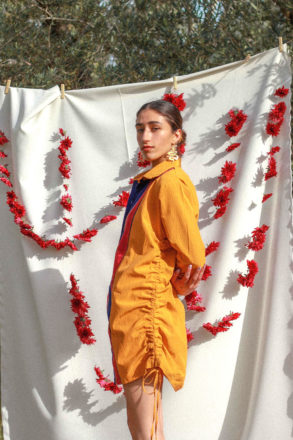
What happened next was to change her life in unexpected ways: The picture went viral. Women all over the world shared it, wrote enthusiastic comments and began to tell of their own experiences with sexual violence. “That was a key moment for me”, Yasmin Mjalli says during a Zoom meeting. “Even though you know you’re not the only one experiencing these things, it’s very easy to feel alone. And then I posted this photo, and other people wrote: It happened to me too – it changed everything.”
It is important for Yasmin Mjalli to emphasise that sexual harassment and violence are not a prominent feature of Palestinian society. She attributes the fact that she did not experience anything like this in the USA simply to the fact that there she lived in a village and not in a large, busy city like Ramallah. Nevertheless, there are two components in the Palestinian territories that reinforce gender-based violence and make it more difficult to combat – as can be read in a report by the United Nations Population Fund (UNFPA).
It states that, on the one hand, the patriarchal values and norms that prevail in large parts of Palestinian society; on the other hand, the decades-long Israeli-Palestinian conflict, which in many ways inhibits the economic and social development of women in particular. For example, the permanent economic crisis makes it difficult for women to achieve financial independence: The scarce jobs go primarily to men. A woman who is financially dependent on her husband has fewer opportunities to free herself from a violent or restrictive relationship.
Traditional attitudes versus emancipation
A 2019 report by the Palestinian Bureau of Statistics states that just under 30 per cent of all women in the Palestinian territories are victims of gender-based violence. The true figures are likely to be significantly higher given the shame attached to the issue. According to a report by the UNFPA report states that only 0.7 per cent of affected women seek help – because there are not enough trustworthy contact points and because of “fear of stigma and retaliation”.
Thus, traditional attitudes make it difficult to fight gender-based violence. In a survey conducted by UN Women in 2018, half of all Palestinian women and 63 per cent of Palestinian men surveyed said a woman should tolerate violence if it served to keep the family together. But social attitudes, in the Middle East as elsewhere, are in a constant state of flux, greatly accelerated by the increasing interconnectedness of the world.
Throughout the Arab world, there are organisations and initiatives that are trying to break down traditional gender models. Some cautiously, some radically. In Palestinian society, the debate on gender-based violence has gained momentum in recent years. And Yasmin Mjalli has contributed to this.
A fashion label grows out of a spontaneous action
Encouraged and inspired by the encouragement she received from her post, she did two things: She began to address the issue head-on, organising meetings, running workshops for women and documenting experiences of those affected. And she started making jackets with the inscription “Not Your Habibti” and selling them online. Yasmin Mjalli had studied art history in the USA in order to work in a museum later on. Designing fashion had never crossed her mind.
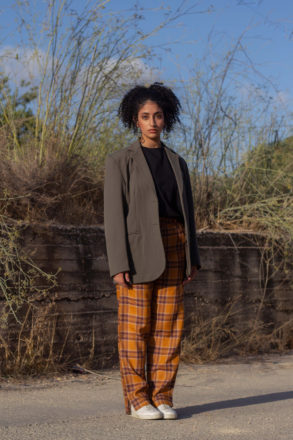
“At first I didn’t see it as something long-term”, she says, “but then it took on a life of its own.” After receiving so much encouragement with the photo of her first design on the internet, she collected used denim jackets and sewed the slogan on them herself.
When demand grew faster than she could sew, she turned it into a project: in 2018, she founded her own fashion label, “BabyFist”, which she later renamed “Nol” (Arabic for “loom”), joined forces with Palestinian women’s collectives in the West Bank and Gaza and professionalised production step by step. Soon, international media became aware of her: The US magazines “GQ” and “Vogue” interviewed her, European and also Israeli media reported.
Yasmin Mjalli has her own story to tell. She doesn’t just want to sell fashion, but an attitude. “Fashion is inevitably political,” she says. “If I make a T-shirt in a factory where I don’t know what the working conditions are like, what salaries are paid, whether women and men are treated equally – how does that serve my feminist work?”
That is why, she assures, she pays attention to ethical production conditions for imported fabrics and colours. In the meantime, her small business has become her main occupation, and she can live off the income. She sells about a hundred garments a month through her online shop, most of them to the USA, the rest mainly to Europe; only very few Palestinian customers can afford prices of 100 Euro for a top.
At the same time, Yasmin Mjalli uses her rising profile to initiate projects and debates in Palestinian society around women’s rights and feminism. In 2019, for example, she initiated a series of workshops on menstruation in Palestinian public schools: A topic that, like sexual harassment, is fraught with stigma and fear. And not only in Palestinian society, as Yasmin Mjalli points out in her effort to avoid stereotypes, “but all over the world”.
A feeling of home, despite all adversities
The Israeli-Palestinian conflict, which has overshadowed life in this part of the world for decades, repeatedly affects her everyday life. If she wants to import green textile dye, for example, she says, the Israeli authorities often check the goods particularly thoroughly and at length, “because they fear the dye will be used to produce uniforms.”
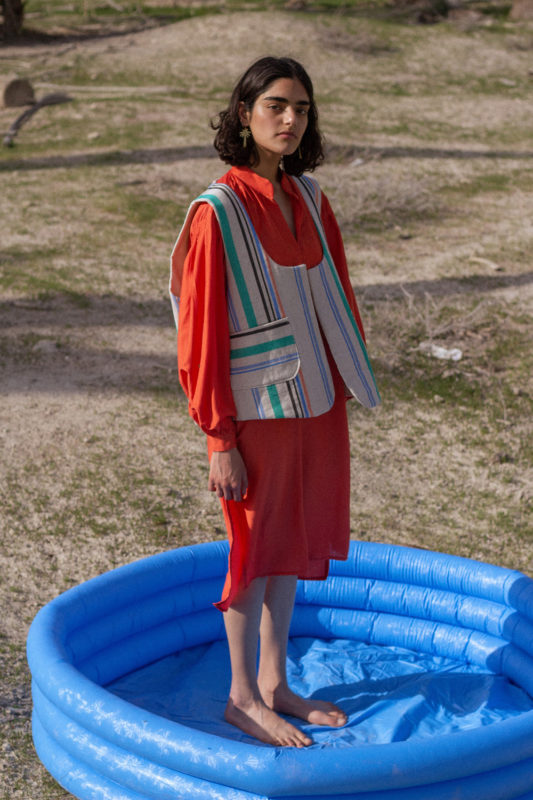
Even when it comes to the conflict, Yasmin Mjalli is bluntly political. She refers to “the occupation “when she means Israel, and on the Facebook page of the “Nol Collective”, as she calls her loose association with Palestinian women’s collectives, the hashtag #fuckisrael sometimes appears in tense times. Although she ventures into sensitive topics, she is hardly ever attacked, she reports with a casual shrug of her shoulders – and if she is, “I don’t care”.
Against all odds, she has become at home in Ramallah. She is improving her Arabic, once her mother tongue, but over the years pushed into the background of her consciousness by English. She says she has freed herself from stereotypes she internalised about Islam in the US and found peace with her identity as an Arab Muslim woman. “I feel like I’ve come closer to myself here,” she explains, “the only thing I regret is that I didn’t move here sooner.”

